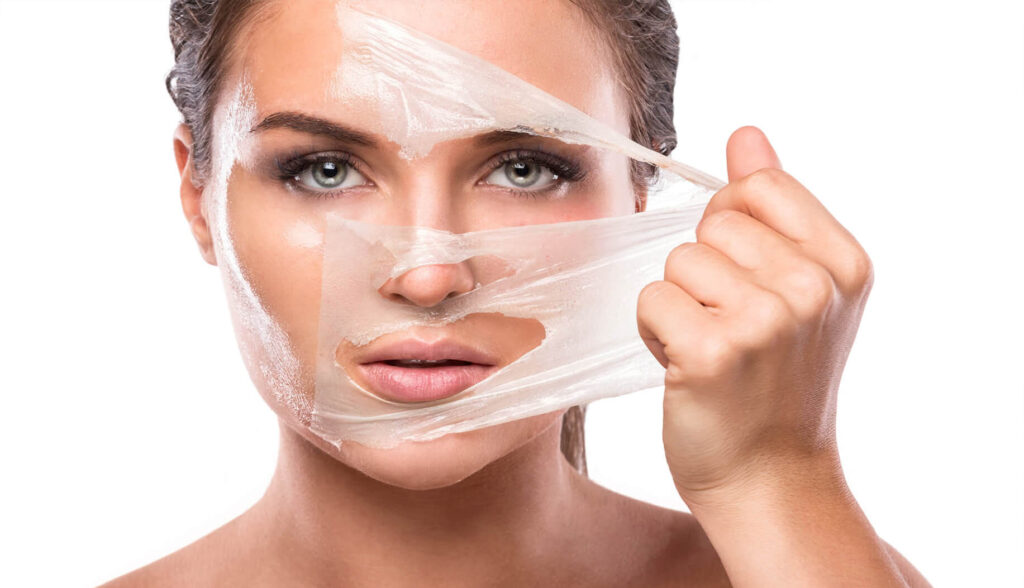
Chemical peels encourage the skin to shed dead cells on the top layer while not damaging the dermis. The goal is to prompt the skin to generate new skin cells, improving the skin’s texture and giving it a fresher appearance. Any skin disorders, skin sensitivities, and tolerance can determine what peel will work for your skin. Here is more about how the procedure is performed by a specialist with extensive knowledge of cosmetics:
How Chemical Peels Work
Chemical peels can be superficial, medium, or deep. Superficial peels work to strip the outer layer of your skin (epidermis) and may treat mild skin issues like acne. Going beyond the epidermis, medium peels penetrate to the dermis, papillary, and reticular layers to address shallow scars, keratosis, and wrinkles. Severe photoaging, scars, and deep wrinkles may improve with deep peels that can penetrate further into the skin.
Chemical peels can minimize the effects of damage to the middle and dermal layers of the skin caused by the sun (photoaging) or chronologically aged skin. Photoaging happens when your skin is exposed to UV rays, which may happen on a regular basis from spending time outside. This exposure to the sun can change the DNA of the skin cells and could cause some types of cancer. Unlike chronological aging, which cannot be prevented and is due to genetics, photoaging can be reduced.
Deep peels help the dermis produce new collagen and fibers and homogenize the melanin grains. They also evenly distribute the melanocytes and normalize the structure of the epidermis. Medium peels also trigger regeneration and stimulate protein coagulation, resulting in smoother skin with fewer wrinkles. A chemical peel also brightens your complexion and balances the texture of your skin.
Chemical Peel Considerations
Chemical peels have different results, and the success of each depends on whether it is a good match for your concerns. There are precautions taken for deep and medium peels, including avoiding them on active skin infection, open wounds, or if you have renal disease or an allergy to a peeling agent. A deep chemical peel may also be contraindicated among pregnant or breastfeeding women. It is also not advised for people with poor wound healing or for those who have had recent facial surgery.
Before you undergo a chemical peel, consult a dermatology specialist to assess your skin and recommend the right depth. Disclose if you are taking any medications so the specialist can evaluate whether they will affect the treatment. A skin care specialist should then give you personalized tips on preparing for the procedure, aftercare, and a customized skin care regimen.
Book Your Consultation Today
A chemical peel can give you transformative benefits like improved skin texture, brighter complexion, and reduced hyperpigmentation. The procedure stimulates the production of collagen and healthy cells to improve the radiance of your skin. A dermatology specialist can guide you through the process so that your skin care products may penetrate deeper. As your care products work deeper in your skin, they should become more effective. Contact a cosmetic clinic near you to learn more.






